Swimming: Australia faces World Aquatics expulsion, our champions could compete as ‘neutrals’
Australia’s champion swimmers are facing the humiliating possibility of competing at future international events as ‘neutrals’, like Russian and Belarusian athletes, as Swimming Australia faces expulsion from the world’s governing body.
Swimming
Don't miss out on the headlines from Swimming. Followed categories will be added to My News.
Australia’s champion swimmers are facing the humiliating possibility of competing at future international events as ‘neutrals’ – the same demeaning label given to Russians and Belarusians since Vladimir Putin waged war on Ukraine – unless Swimming Australia can quickly persuade World Aquatics not to expel it from the sport’s global governing body.
Just 10 weeks after the Dolphins’ breathtaking gold-medal winning performances in Paris, this masthead can reveal Australia’s most successful and taxpayer-funded Olympic sport is once again in hot water with international regulators, threatened with immediate suspension for failing to implement governance reforms.
Senior World Aquatics officials – including chief executive Brent Nowicki, treasurer Dale Neuburger and legal counsel – will fly to Australia this weekend ahead of crisis talks with Swimming Australia’s board members and stakeholders on Monday.
While the details about the closed-doors meeting in central Sydney remain guarded, it is understood World Aquatics has run out of patience with Swimming Australia’s failure to usher in some of the reforms that were agreed to as part of a historic new constitution voted on in late 2023.
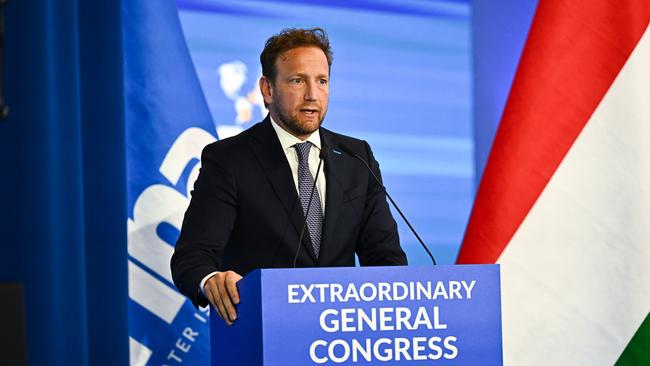
One of the biggest sticking points is that Swimming Australia promised to increase its number of voting members from nine to 21 and include more women in positions of power, giving guaranteed places on the board for an independent swimmer’s committee representative and World Aquatics vice-president Matt Dunn.
That still hasn’t happened, despite repeated warnings from World Aquatics in a series of strongly-worded letters that have triggered the intervention.
Rob Woodhouse, who only took over as Swimming Australia CEO six month ago after years of revolving leadership, says he is committed to making all the necessary changes but will plead for more time, saying the agreed model needs tweaking and he has an alternate proposal which he’s hopeful World Aquatics will agree to.
“There may well be a bit of give and take on that but I’d be surprised if it wasn’t acceptable, or a variation of it, because it does meet with all the requirements,” Woodhouse said.
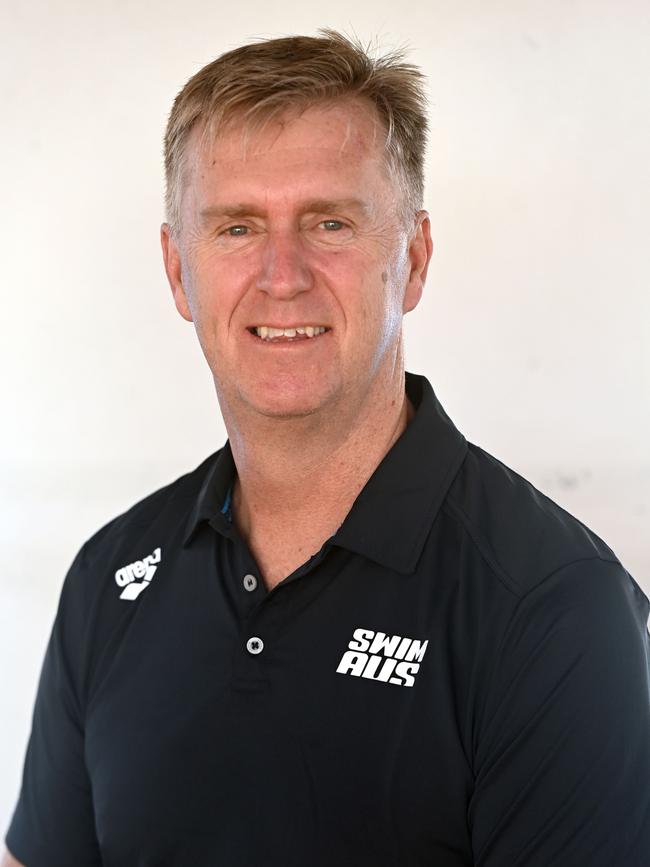
“We want to work with them and we certainly want to work with the Australian Sports Commission as well and work out a way forward because no one wins if it goes down the path of a stabilisation committee or suspension or anything like that.
“I guess that threat, if you like, or possibility, is on the table. We’re well aware of that but we are confident that what is being put forward does have the support of the voting members and meets the constitutional requirements.”
The other burning issue is the current makeup of Swimming Australia’s board of directors. There are nine members, seven men, and two women, with two vacancies.
Just last month, the federal government announced that Australian sporting organisations need to have an equal split of men and women on their boards from 2027 or risk having their funding withheld.
“I think the member vote is the main one, but certainly from a gender equity point of view that would be a concern of World Aquatics,” Woodhouse said.
“It definitely is with the Sports Commission and in our Constitution we have to have a minimum 40%, so our immediate goal is to get to that and I’m confident we will.
“We know what the deadlines were, because they’re very clear in the Constitution to have this change brought in by the end of April.
“That deadline has clearly been missed so that’s one of the main concerns of World Aquatics.”
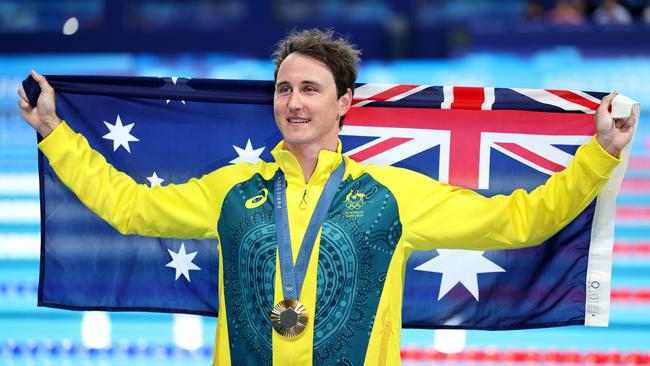
While Swimming Australia hopes its counter-proposal will be accepted, a high-level source, speaking on condition of anonymity, said that might be too little, too late for World Aquatics frustrated leaders.
“If it’s not resolved on Monday, the next step will be suspension and the implementation of a stabilisation committee,” said the source.
“They are used to babysitting some countries, but they don’t expect to have to babysit member countries like Australia so the messaging will be crystal clear. They want a resolution on Monday.”
Such is the magnitude of the meeting, representatives from the Australian Olympic Committee and the Australian Sports Commission (ASC) will also attend the meeting, but only as observers.
A spokesperson for the ASC confirmed the commission had been involved in preliminary talks with World Aquatics and Swimming Australia and was hoping for a resolution before it gets to pistols at dawn.
“Good governance is critical across all sports in Australia, especially for our leading and highly funded sports such as swimming,” the spokesperson said.
“We’ll continue to work closely with all parties to ensure swimming is thriving and a sport for all Australians to be involved in.”
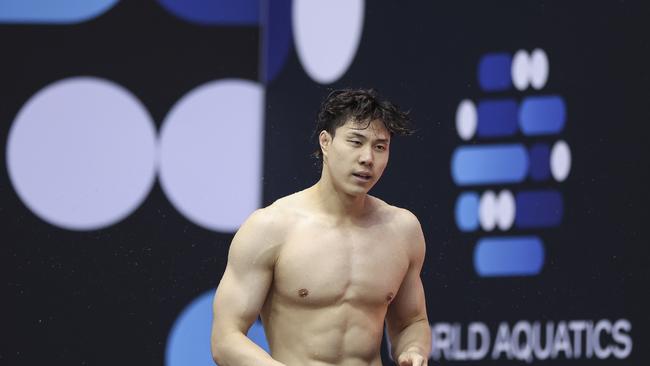
Swimming Australia’s voting members have all been summoned to Sydney for the meeting and expected to present a unified front, although privately, some have serious reservations about why World Aquatics was singling out Australia but allegedly turning a blind eye’ to the revelations from this masthead that 23 Chinese swimmers had been secretly acquitted after testing positive to a banned drug in 2021.
“I’d like to know what they’re doing about China. That’s a real crisis,” said one member.
Another added: “None of this adds up. There’s no financial impropriety. The members are all democratically elected. And the proof that Australia can look after itself was there for the world to see in Paris.”
The only thing everyone agrees on is that the stakes are high and no swimmers should be punished.
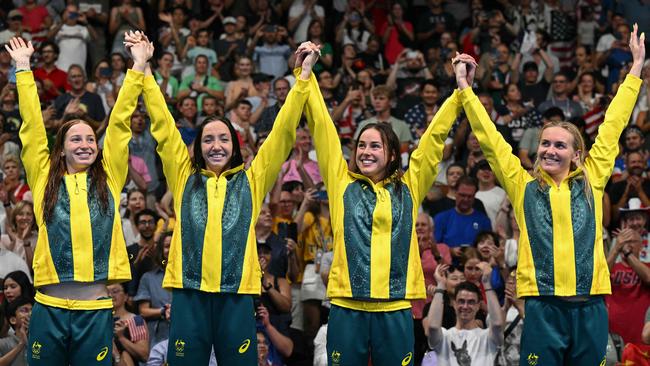
If Swimming Australia does not cut a deal with World Aquatics, the sport’s world governing body has the authority to suspend Australia’s membership, appoint a stabilisation committee to effectively run the sport and even freeze their accounts.
Swimming Australia could also be stripped of government funding.
But none of Australia’s swimmers will be prevented from competing at major meets, including next year’s world championships in Singapore, although they could be bound by the same rules that apply to Russians, meaning they can’t swim in their national colours or have the national flag or anthem displayed at medal presentations.
“We don’t know what the outcome will be,” Woodhouse said.
“But I’m confident whatever the outcome will be, we’re very much business as usual. For me, the priorities are about the athletes and the coaches and that high performance system.”
More Coverage
Originally published as Swimming: Australia faces World Aquatics expulsion, our champions could compete as ‘neutrals’





